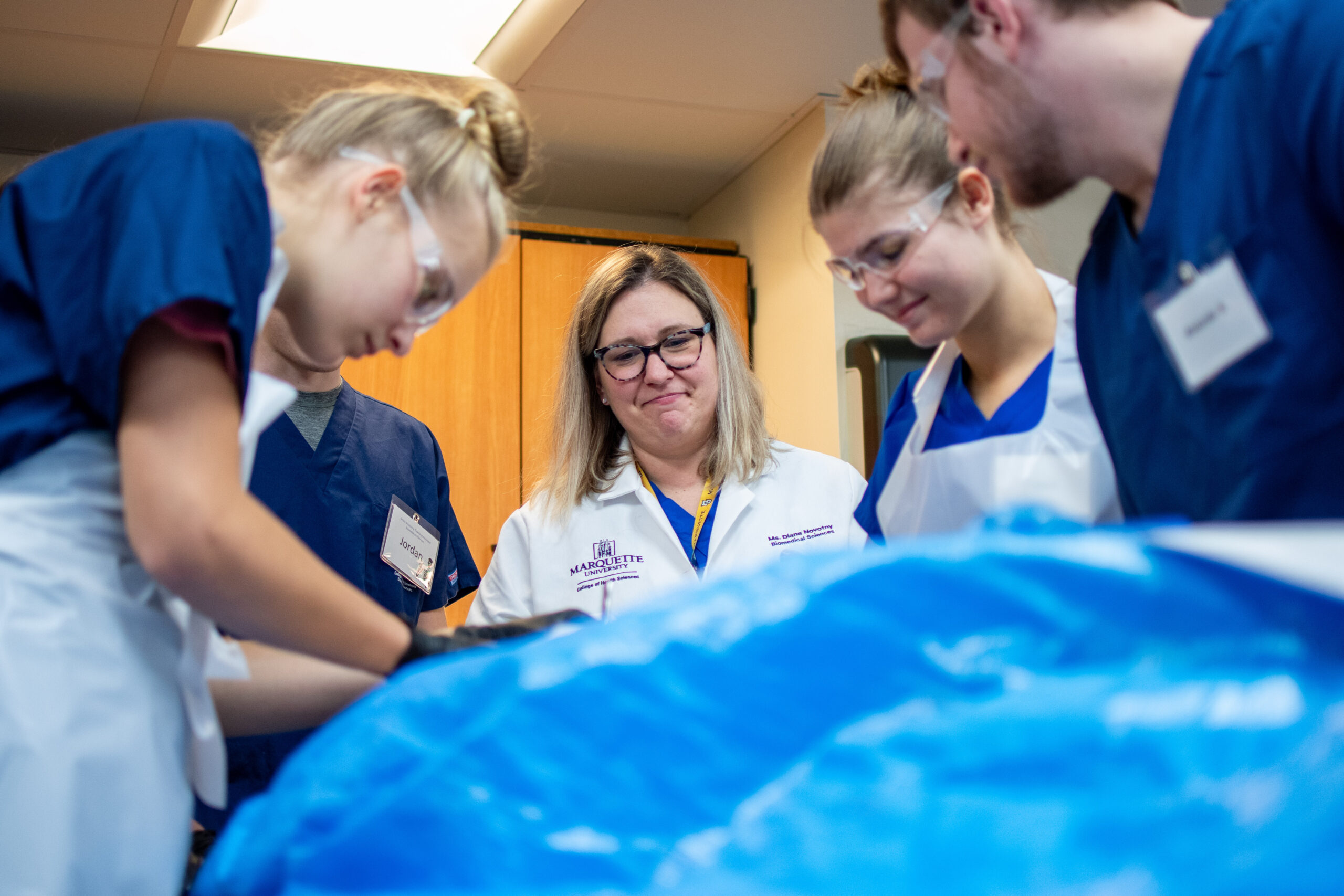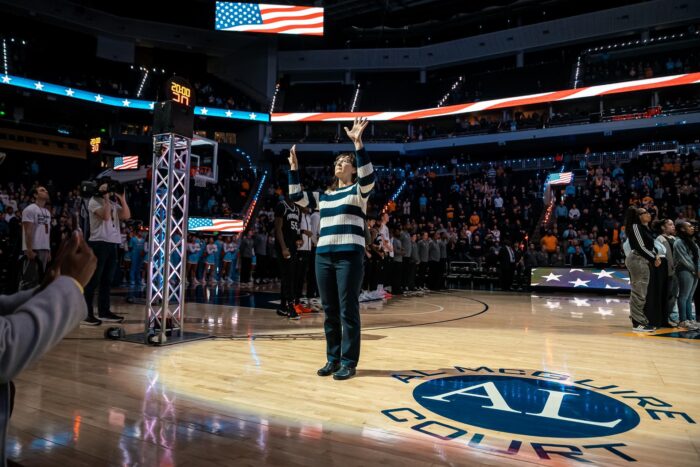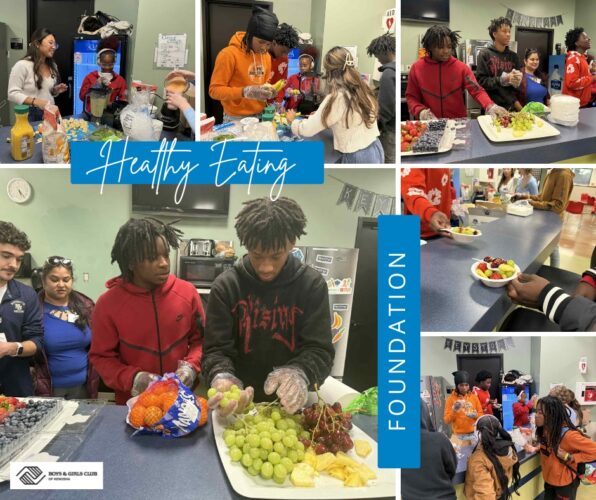Senior biomedical sciences student Alex Hoppe was eager to tour Marquette’s Gross Anatomy Lab as part of a high school immersion experience in spring 2020. Due to the pandemic and a change in his major freshman year, Hoppe first saw the lab as a sophomore when he finally enrolled in the College of Health Sciences gross anatomy dissection course.
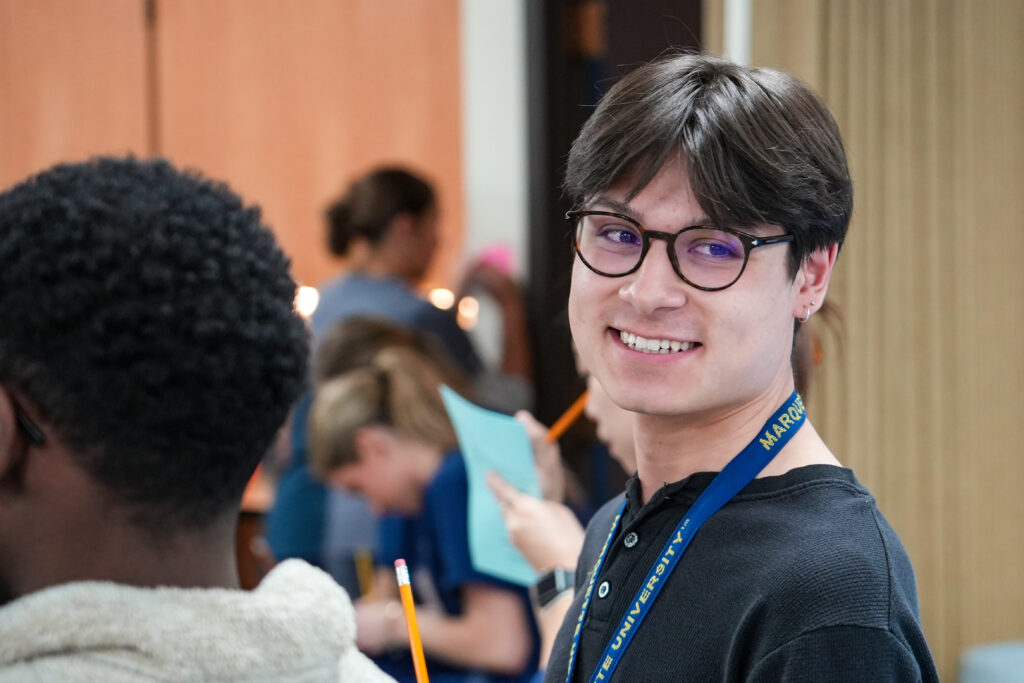
“It definitely lived up to the expectations I set for it in my head,” Hoppe says. “There’s no other curriculum or major here or on any other campus where you’re doing something so unique and personal as an undergraduate.”
Dr. William E. Cullinan, dean of the College of Health Sciences, launched the course in spring 1997. It was, and still is, an unusual learning opportunity for undergraduate biomedical sciences students that has become one of the college’s hallmarks.
In the late-1990s, with the college — and the course — in its infancy, only six students signed up the first semester. Soon, that grew to 40 to 60 students, ultimately maxing out at 100 students per class.
“I knew there would be a growing interest in something as rare as a cadaver donor dissection course for undergraduate students,” Cullinan says. “While there exist supplements to gross anatomy dissection, there are no substitutes for it. There just isn’t any way to study anatomy that compares to this experience for students in terms of power and impact.”
The elective course, which is paired with a four-credit clinical human anatomy course during the fall semester, is deeply impactful to any type of student, says Diane Novotny, biomedical sciences program coordinator.
“The donor is more than a body; it is a type of teacher and we always preface the course for students by describing them as a first patient, and to treat them as a living person,” Novotny says. “That includes draping the body to expose only the region of study, for they are going to get to know the donor intimately but never actually meet. And every year the students rise to the occasion.”
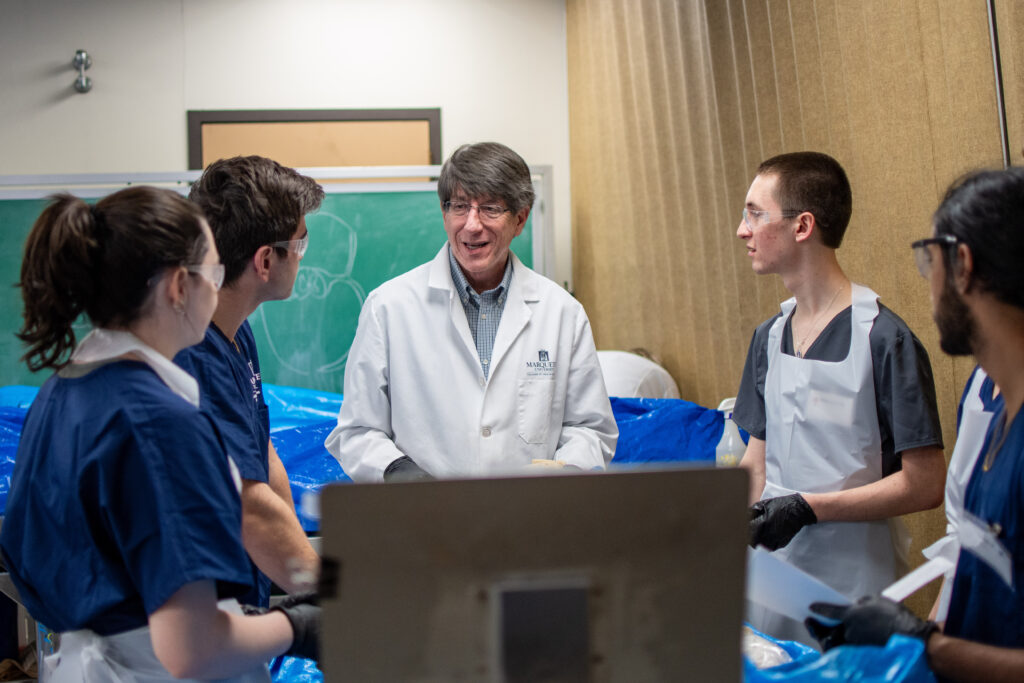
Novotny says some of her most memorable experiences in the Gross Anatomy Lab are spent trying to understand now antiquated surgeries they’ve seen in a donor.
“We spend many weekends Googling surgical techniques to figure out what a device is that we found in the donor,” Novtony says. “Those experiences are so beneficial to students as they learn about techniques that aren’t used anymore and see some of the cutting-edge technologies that are being performed today. The course gives them exposure they typically wouldn’t get until professional school.”
Hoppe says his experience in the lab affirmed his career aspirations, recalling how proud he was to first put on his scrubs and stand before his donor patient.
“When I go to medical school and ultimately become a physician I am probably going to be wearing scrubs every day. So, seeing myself in a mirror in scrubs for the first time was like seeing my own future and was a very cool experience,” Hoppe says.
At the end of each gross anatomy course students host a memorial service to honor the donors they’ve learned from all semester.
“The high level of maturity, thoughtfulness and respect that these young students bring to the service never ceases to amaze and impress me,” Cullinan says. “I think it makes the entire faculty proud of both who they are and who they are becoming.”
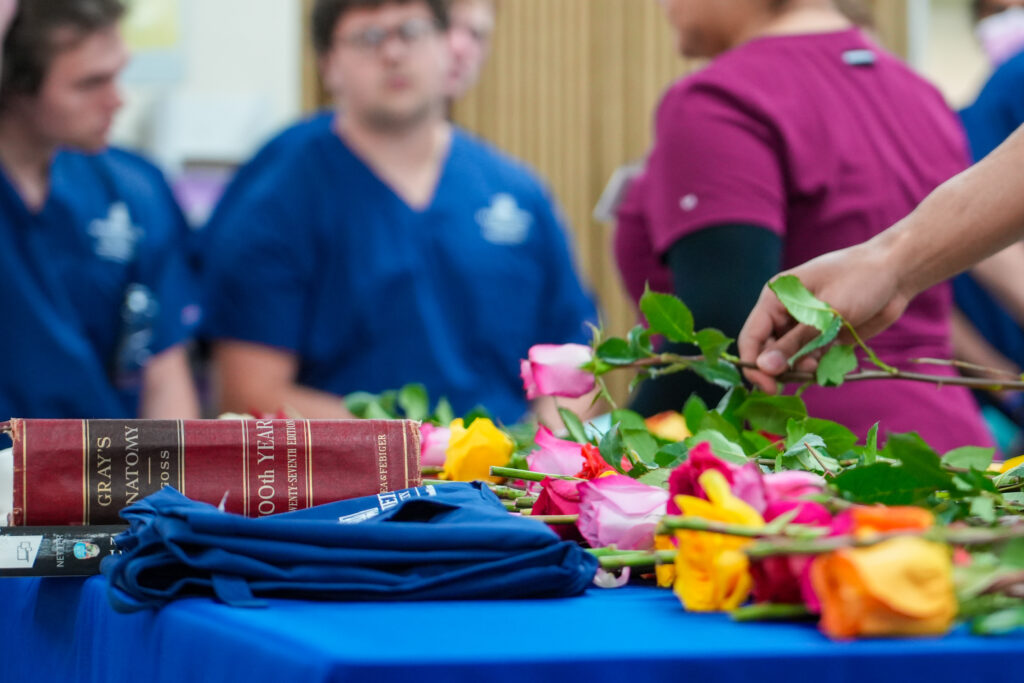
Hoppe, who has now twice served as a teaching assistant for the course, says he was caught off guard by how emotional he got during his first memorial service.
“I think when you’re in such a learning-rich environment twice a week for 15 weeks, you become more comfortable with what you’re doing,” Hoppe says. “But at the end, it becomes personal again when you realize these donors, these people, have become teachers because of how much they’ve taught you.”
Hoppe says he hopes future students take advantage of the gross anatomy course and understand how special it is. “The experience and depth of knowledge you gain before even entering medical school or any professional program in a medical field is incredible,” Hoppe adds. “A deep understanding of anatomy should be at the top of the list for any prospective student looking to go into health care and you get that at Marquette.”
